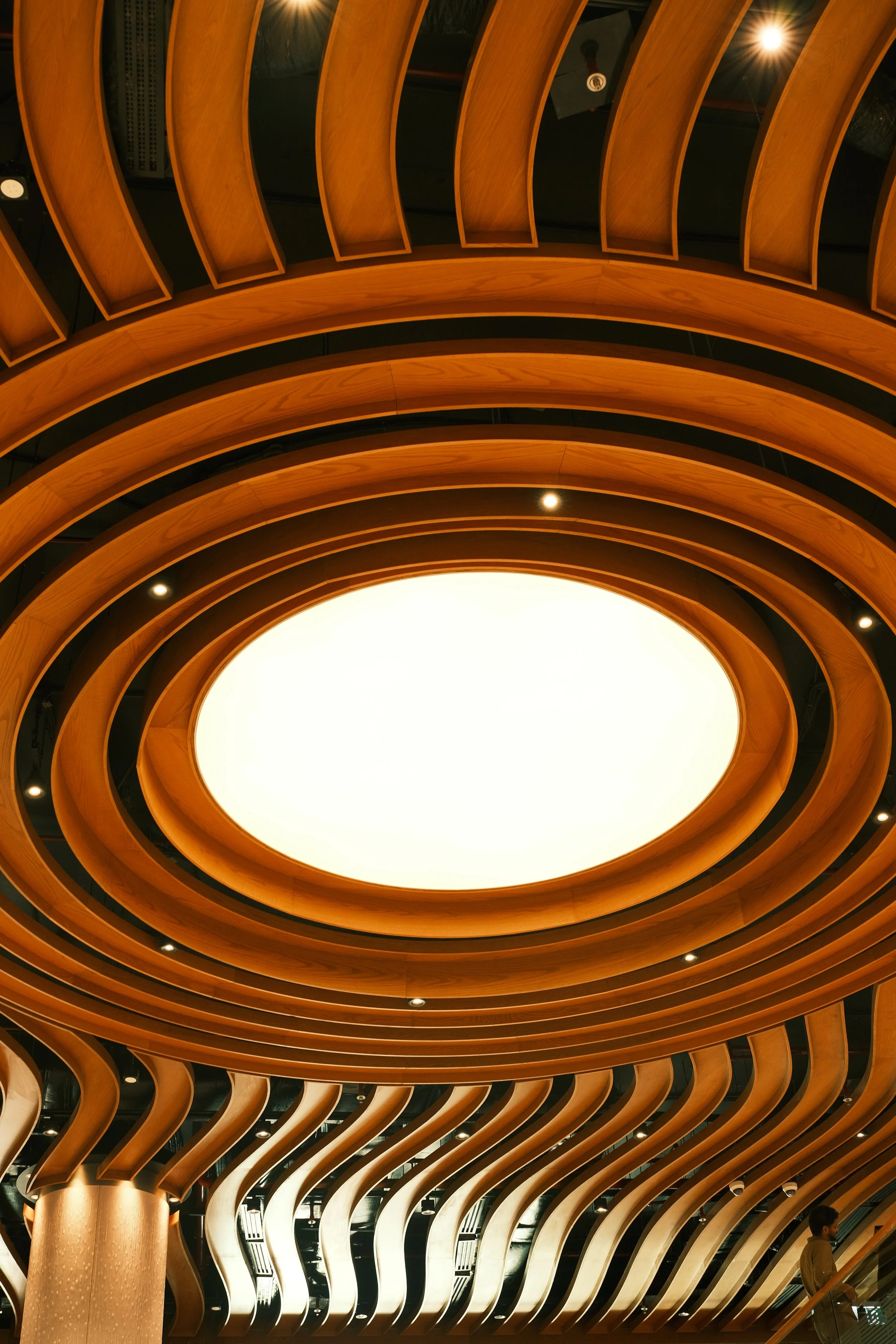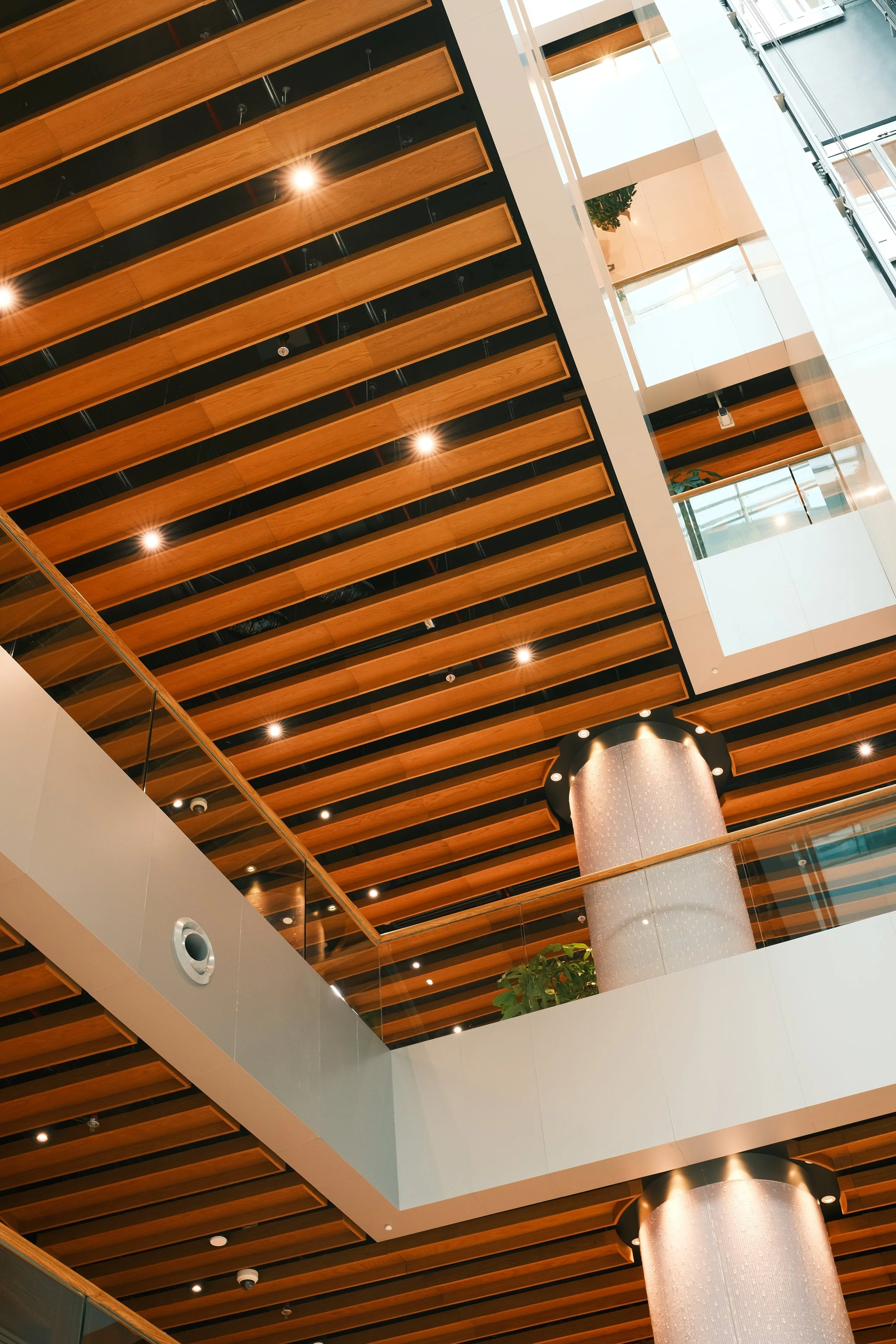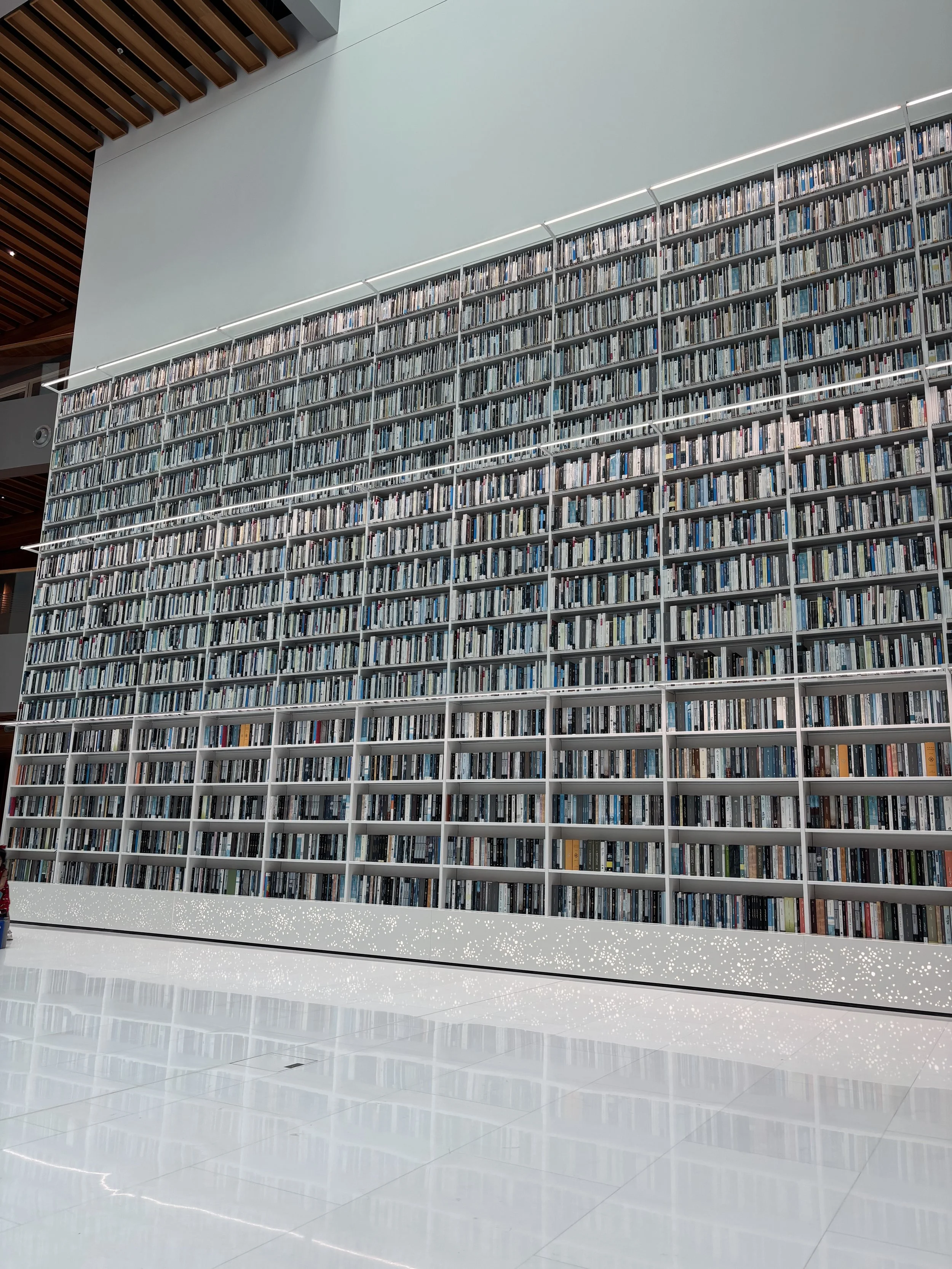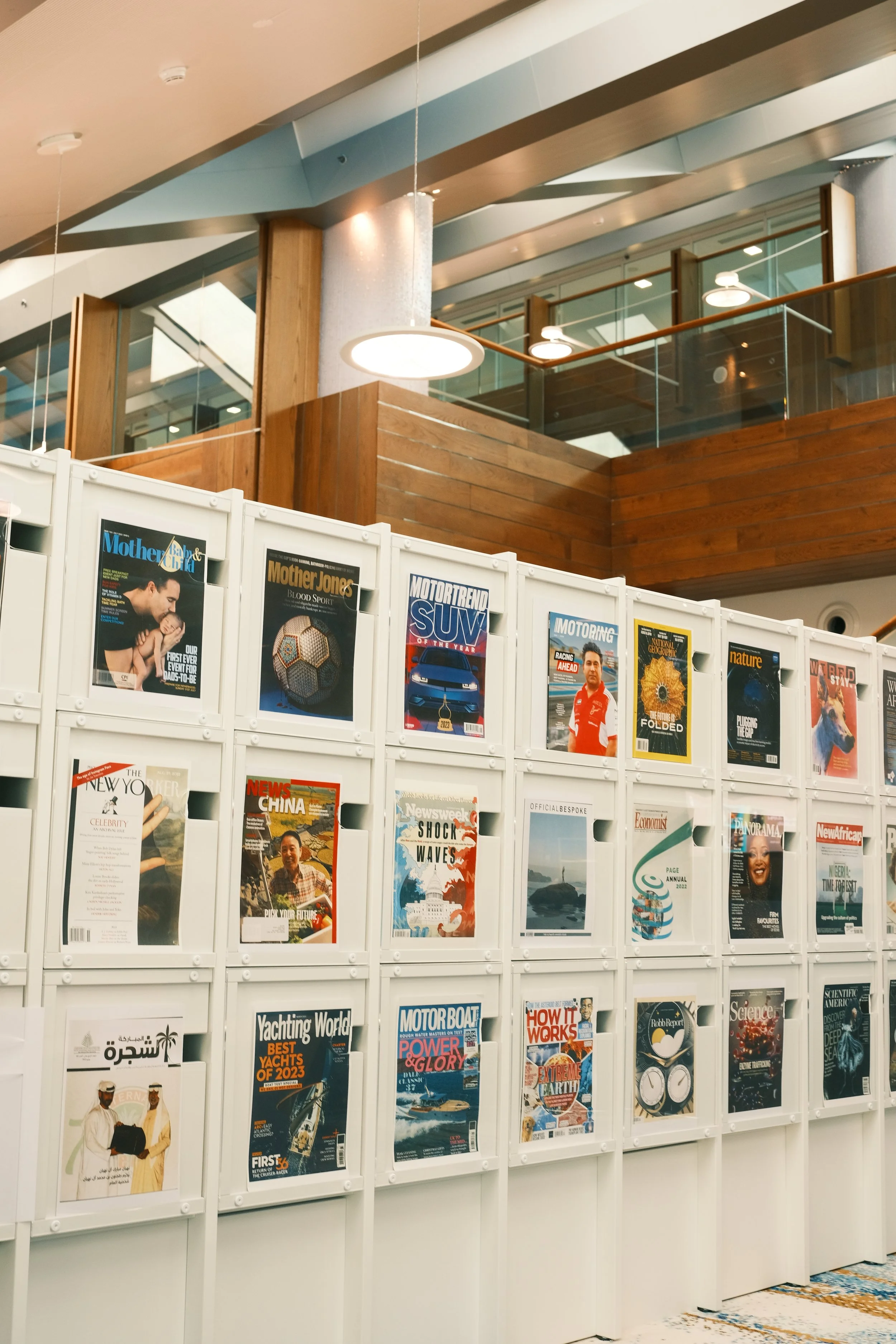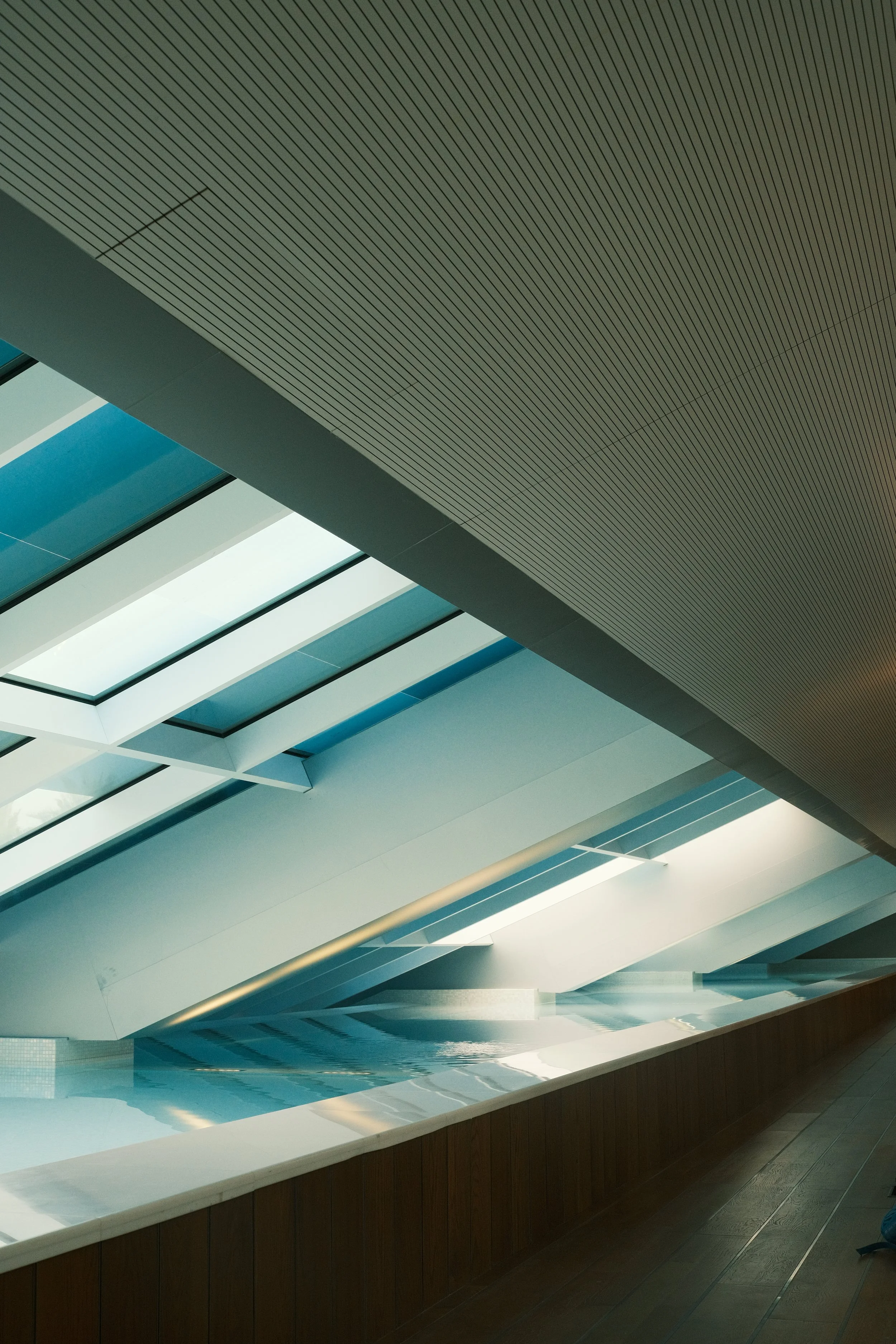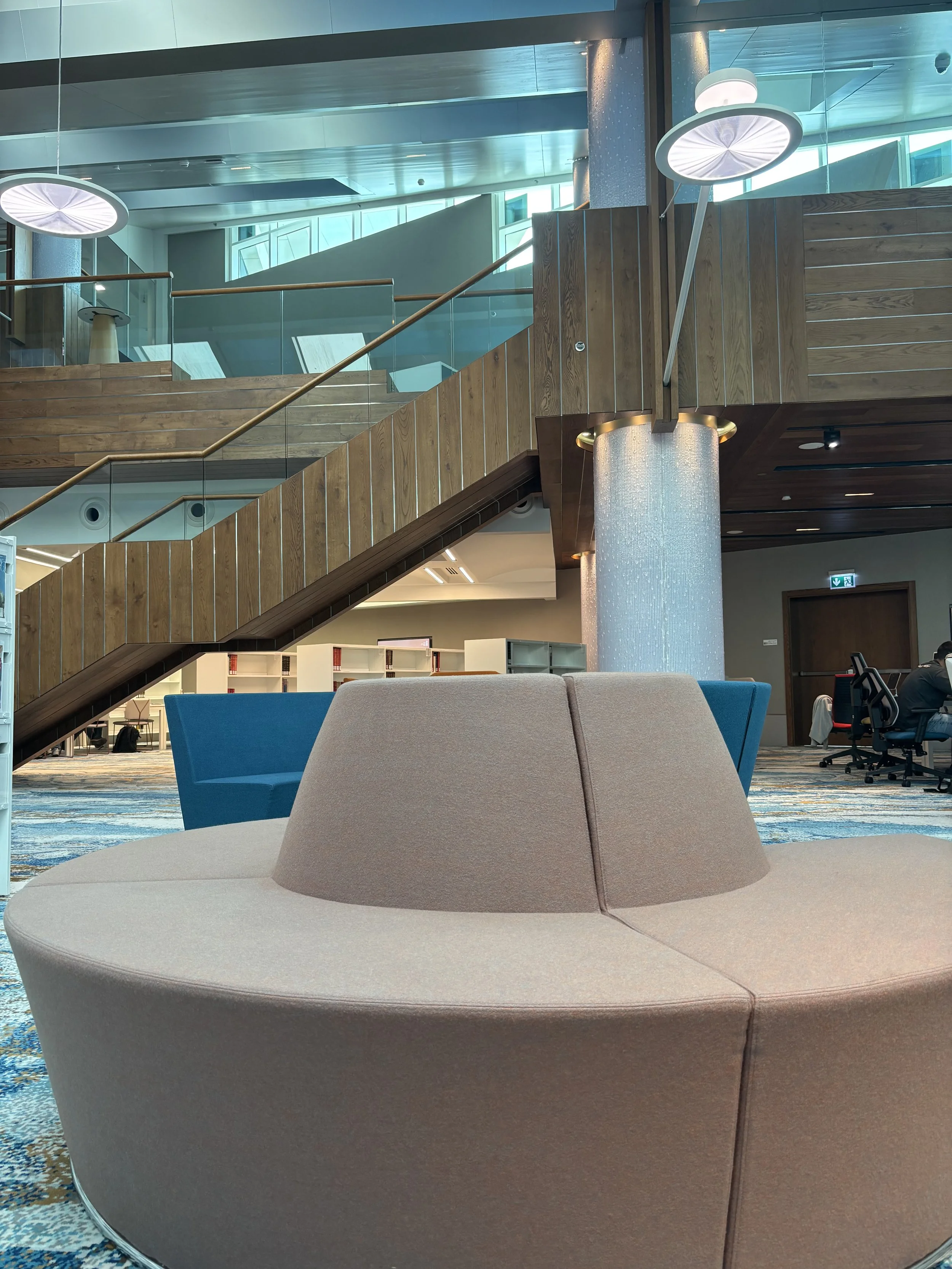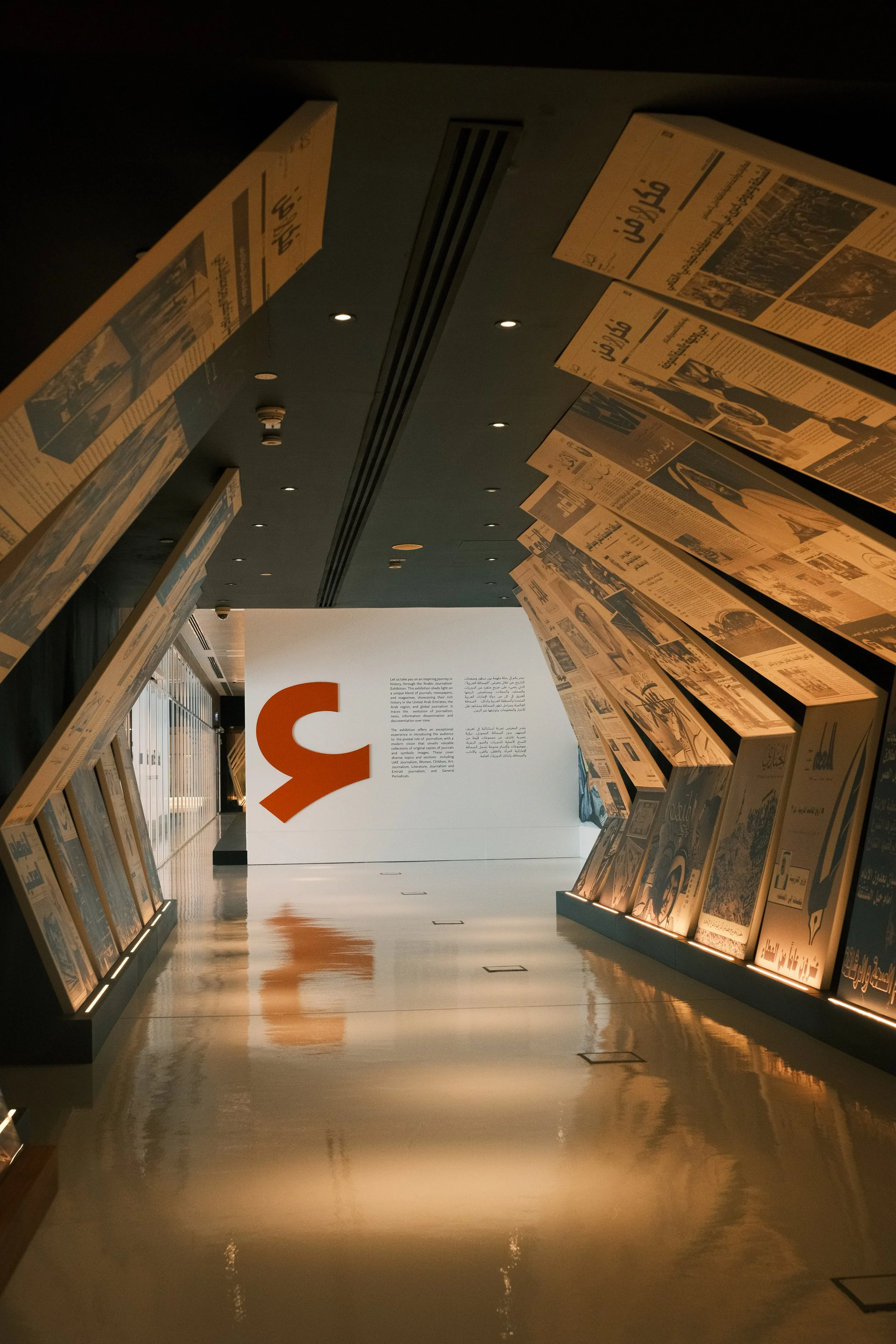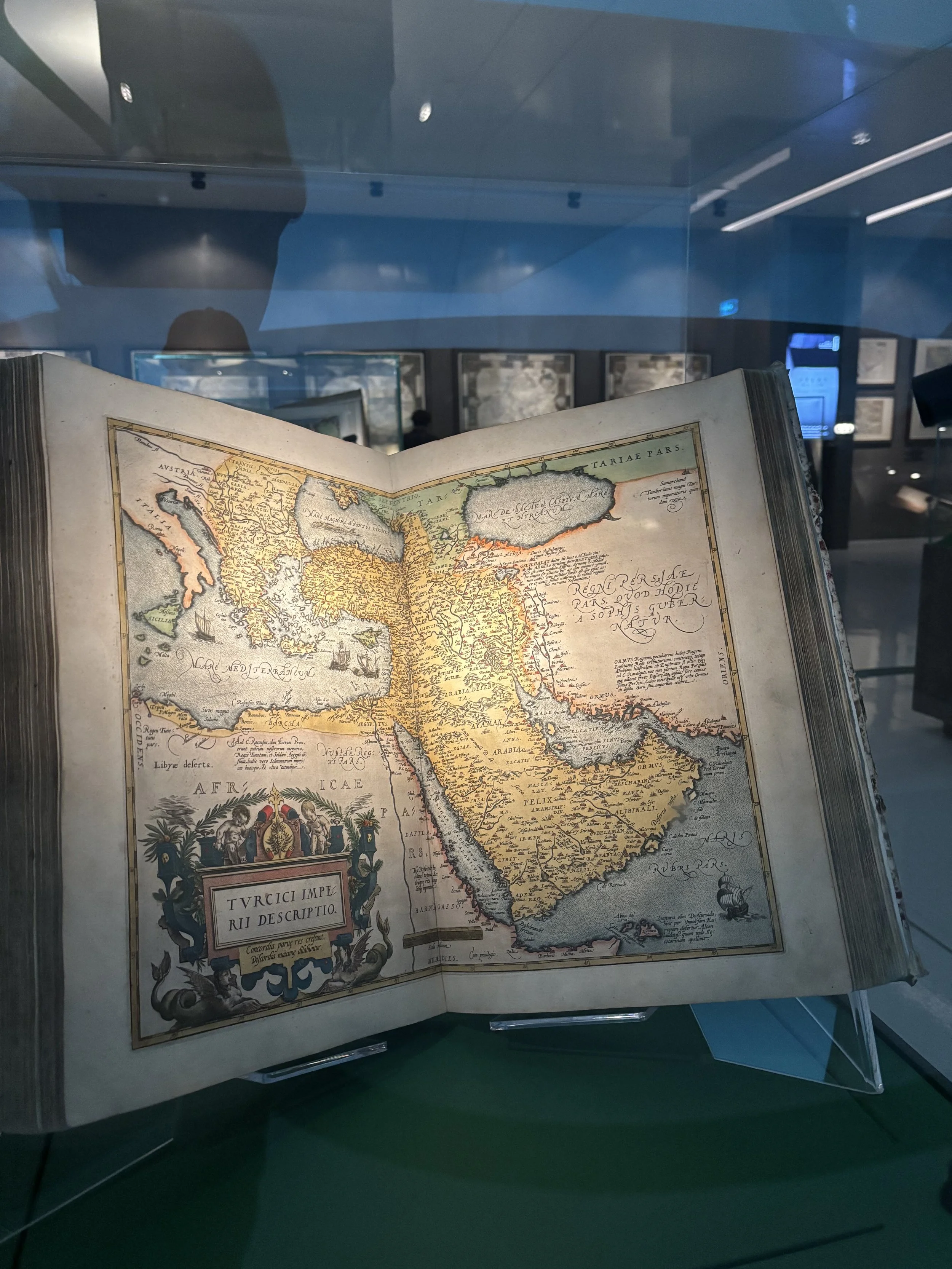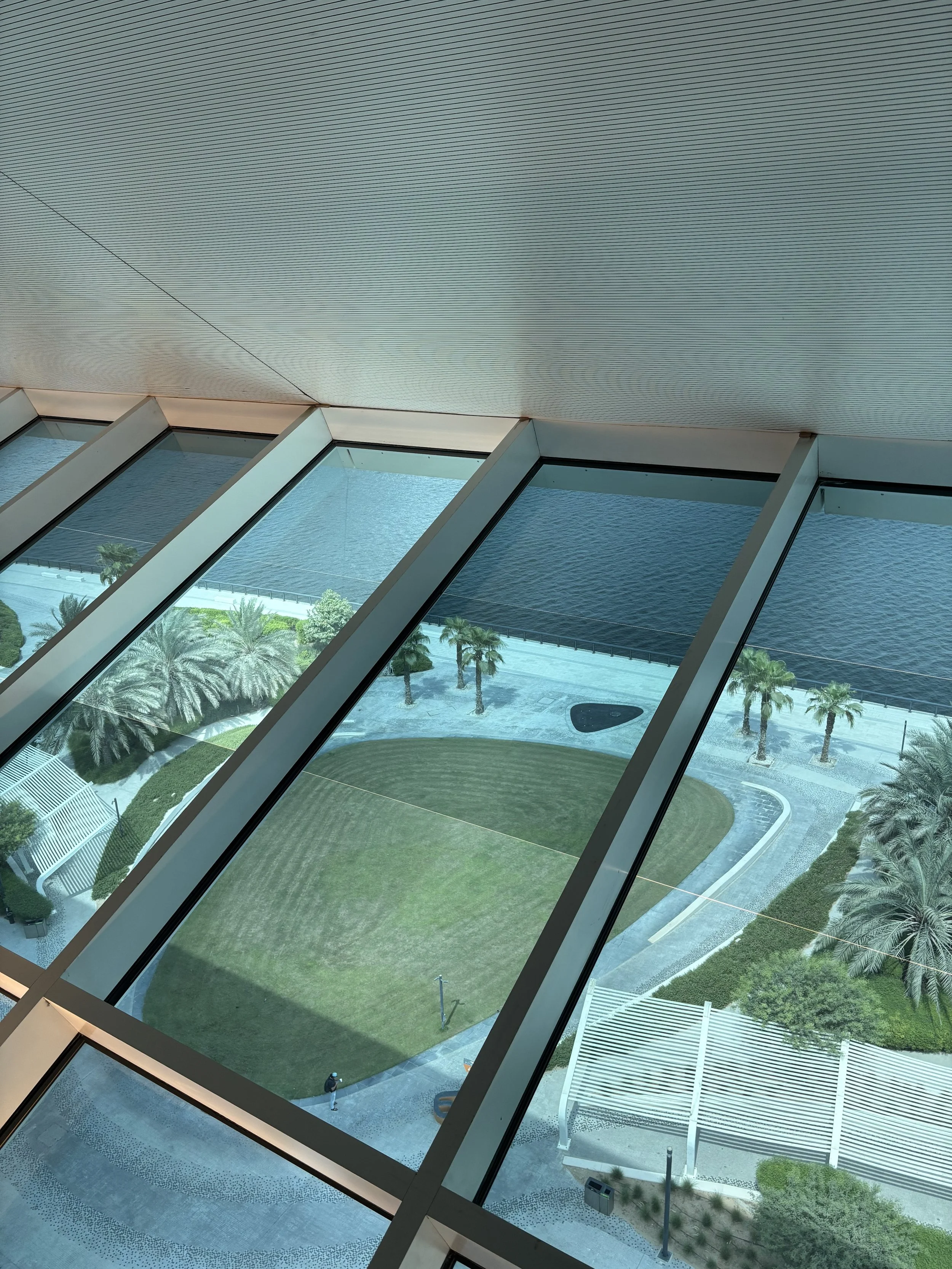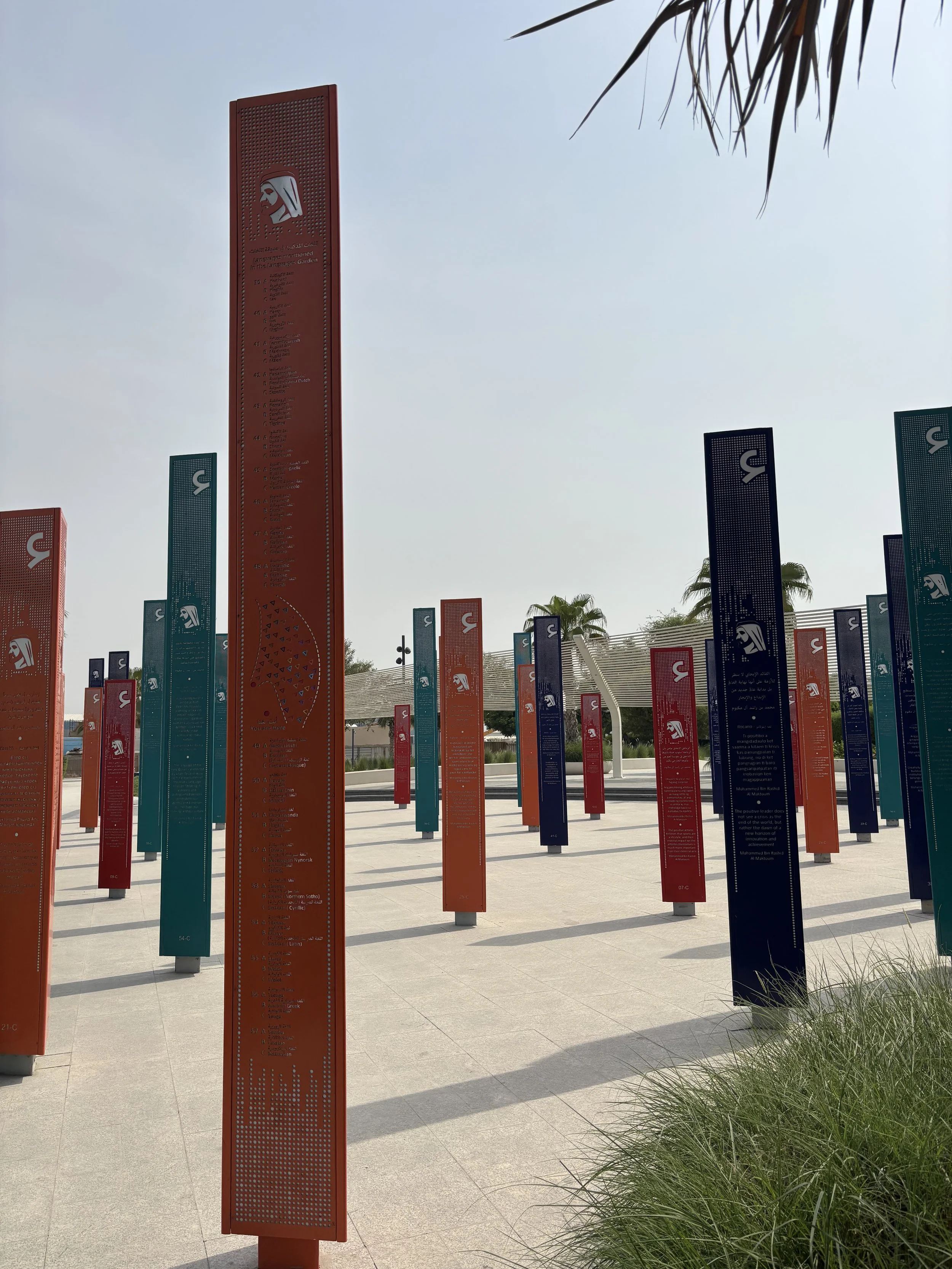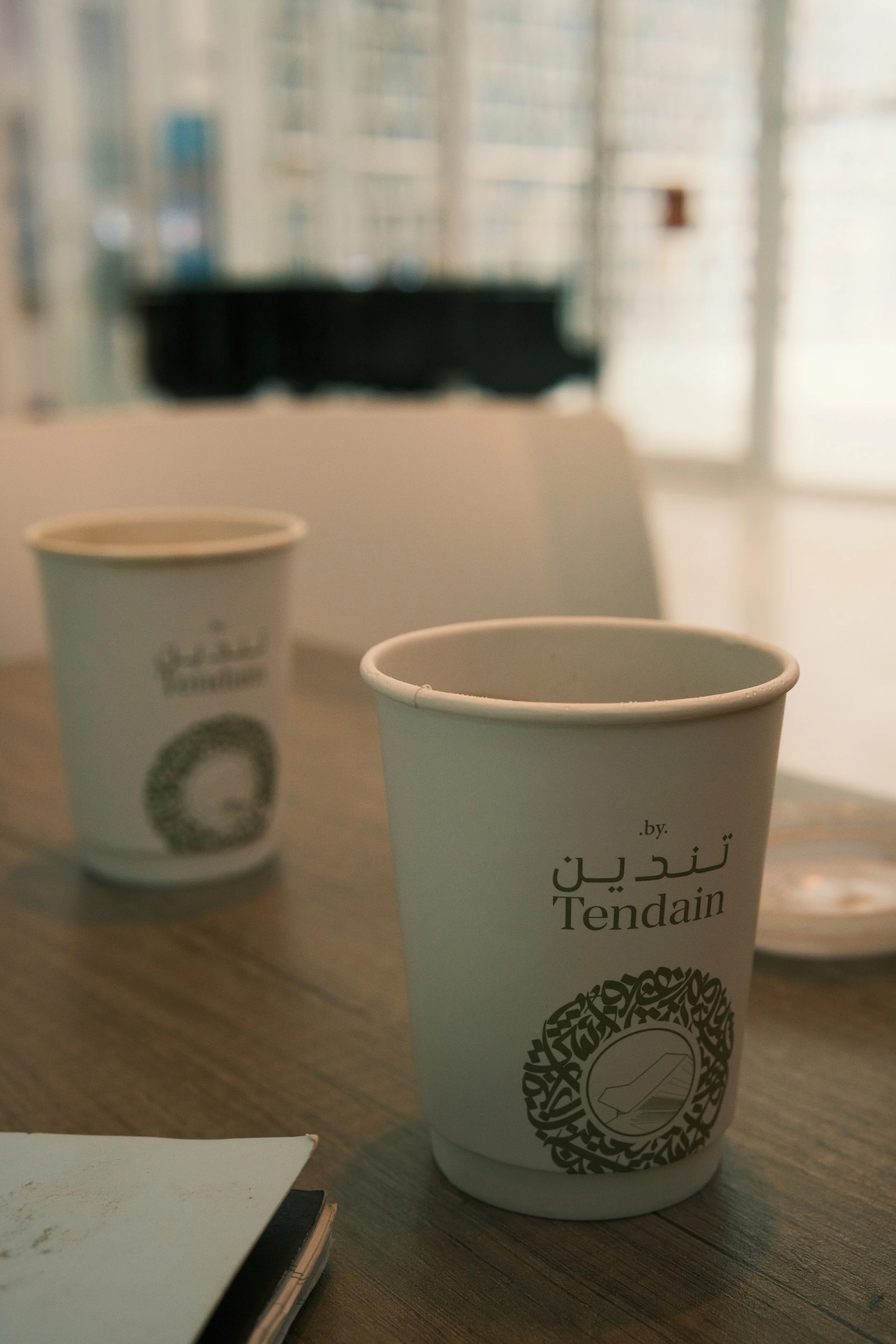DAYS IN THE LIBRARY
In a city where architectural ambition touches the sky and where buildings twist, bend, and defy gravity, it’s only fitting that a library, too, would dare to become something more than just a building. The Mohammed Bin Rashid Library, perched along the Dubai Creek, doesn’t just house books. It is a book.
Quite literally.
The entire structure is shaped like a massive open book resting on a Rehl which is a traditional wooden lectern used to hold holy scriptures. At first glance, it feels surreal. From a distance, it appears like something carved out of thought itself. The lines are sharp yet graceful, the curves deliberate, bold, and unapologetically modern. There’s a poetic confidence to its presence that says: yes, even a library can be an icon here. I don’t know if there’s another library in the world quite like it, one so deeply committed to metaphor, to message, to form reflecting purpose. And in a place like Dubai, where excess is often misunderstood, the symbolism of this building is grounding. Amid the towers and extravagance, here’s a monument to stillness, knowledge, and human curiosity. It stands not just as an architectural marvel, but as a declaration that in a fast moving city, we still make space for the quiet weight of words.
Stepping into the Library is like walking into a memory you didn’t know you had, one shaped by light, scent, and silence. The first thing that hits you isn’t the vastness but the smell. The smell of oud and the unmistakable, earthy scent of a million books, aged pages, fresh bindings, ink, and wood. It’s like the air itself has been soaked in stories. It clings to you in the best way possible, like you’ve stumbled into a vault of time, or a secret the city has been keeping. Then comes the light that’s pure and elegant, slicing cleanly through the architectural cuts on each side of the building. There’s something cinematic about the way it lands: long beams gliding across white walls and polished floors, illuminating readers without ever interrupting them. The building breathes with it.
Transparent escalators and glass elevators carry people gently across levels like floating ideas. There’s something symbolic in this too, kind of an openness, a visibility of thought and movement. You can see everything from everywhere, and yet no part of it feels chaotic. It’s a place designed to be seen through but not seen past. Above you, rows of warm wooden slats pattern the ceiling like a quiet symphony, softening the angles of the building’s sharp intellect. Then comes the moment you’ll remember. You turn the corner, and the lobby greets you with a towering 18-foot wall of bookshelves that stand like gentle giants. It doesn’t intimidate but invites you. Read me, it says.Lose time here.And even though the place is alive and in constant motion with students heading to the young adults Library, families by the café, researchers tucked into study pods, there is a stillness, a hush that hangs like breath held in awe. It is busy, but not noisy. Full, but never overwhelming because it is a place where the soul, if you’re quiet enough, can sit beside you while you read.
And i’ll tell you one thing though, that getting into the details of the seven floors of this library will require me to write another blog, the ground floor housing the reception, general, periodicals(where I hang out most of the time for aesthetics reasons) and children’s library. The first floor with media & arts, maps & atlases and young adults library. The second floor with study rooms & employees offices and administration offices stacked on the third floor. Conference & meeting rooms and special collections library hosted on the 4th and 5th floor respectively. An Emirates & bussiness libraries on the 6th floor and and exhibition museum on the 7th floor which i’ve become very acquitted with.
I didn’t expect it but the moment I walked in, past the towering shelves and golden wood, through the echo of pages being turned and coffee being stirred, my mind went home and not to the home I sleep in now, but to Fort Portal, the small, green town at the foothills of the Ruwenzori mountains in Uganda the place that raised me and more specifically, to its modest little library, tucked into a government building, no bigger than a modern bungalow house. I remember the smell, not of a million books like here, but of dust and damp covers and the quiet. Not because it was full, but because most days, I was the only one there. I’d walk in and trace my fingers along the shelves like I was dusting the spines for memory, trying to find the book I read the last time I came, as if the story hadn’t moved, as if it had waited just for me. Standing now inside this colossal architectural wonder, where books seem to float and light falls like grace, that library feels impossibly small and not in a bad way but in the way something once sacred begins to glow again in your mind, like a scene from your childhood. Like a whispered thank you to your past self for walking in, sitting down, and reading. and what moved me more than the architecture was the people.
Hundreds of them. Moving across escalators, sitting in quiet corners, hovering by poetry sections, filling study booths, sipping lattes with open pages beside them.Children exploring. Elders revisiting and some just here to take photos, and I thought: People really do love stories. They love, language & art. Maybe more than I ever let myself believe and in a world that’s noisy and fast, maybe this is what brings us back to one another and not algorithms or status but the shared awe over something as simple as a well told story.
In a city of skyscrapers, supercars, and same day deliveries, a place like this almost feels rebellious. A library not a bookstore or a podcast or an AI-generated feed of words and facts. A library where you have to find what you’re looking for yourself, and read it slowly and in being here walking among strangers, all silently reaching for something, I was reminded that libraries still matter, maybe more than they ever have because in a world obsessed with speed, libraries slow us down and ask us to linger and to search, touch and sit with ideas longer than a scroll, and to earn the magic of understanding instead of consuming it in seconds. In a time when everyone is talking, libraries offer the radical grace of silence, a space where voices live on pages instead of profiles, where wisdom is not shouted, but whispered, gently, through printed word and passing glances. They remind us that knowledge isn’t always monetized, and that stories don’t need to go viral to be valuable but instead sanctuaries for students, readers, wanderers, misfits, thinkers, and anyone trying to figure out where they fit in this fast, digital, overstimulated world, most of all, libraries hold the truth that is becoming easier and easier to forget:
We are not as alone as we think.
Someone, somewhere, once had the same thought you’re afraid to speak, they wrote it down and now, in a quiet room filled with strangers, you stumble upon it and feel seen and that’s why libraries matter because sometimes, the thing that saves you isn’t a plan or a platform but a paragraph. A poem. A line that says: “Yes, I felt that too.” And in this quiet, glowing space where Dubai’s futuristic skyline meets the soft spine of a novel, I remembered that while the world keeps building up, we must still build within and places like this?
They are the blueprints.
